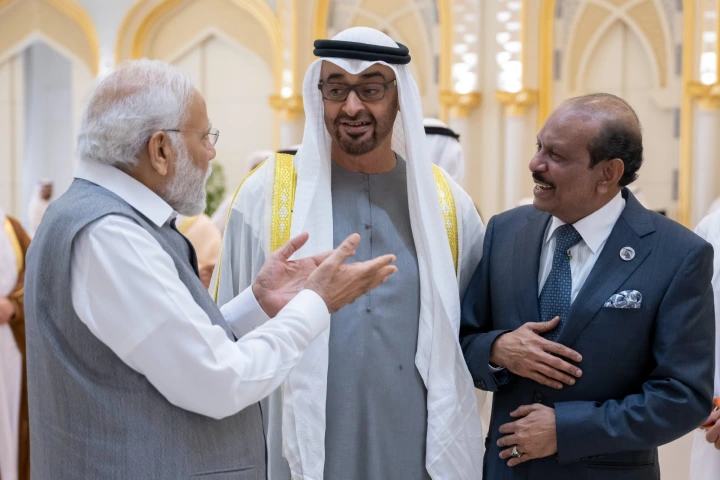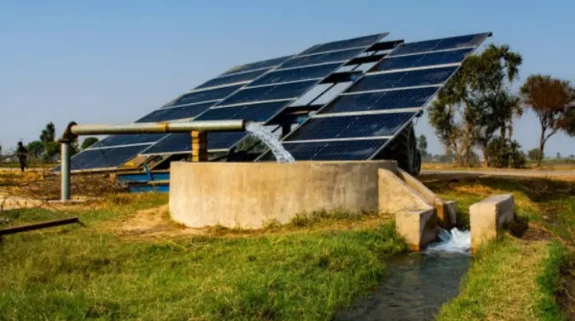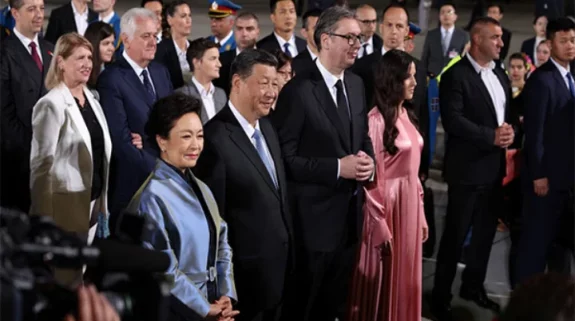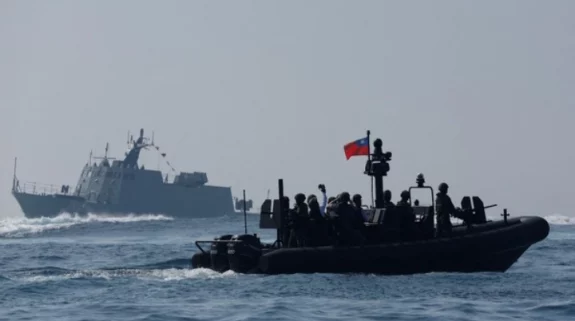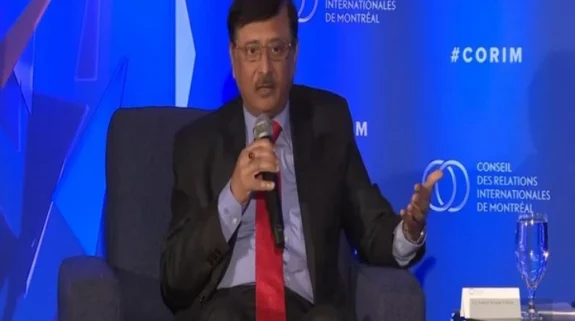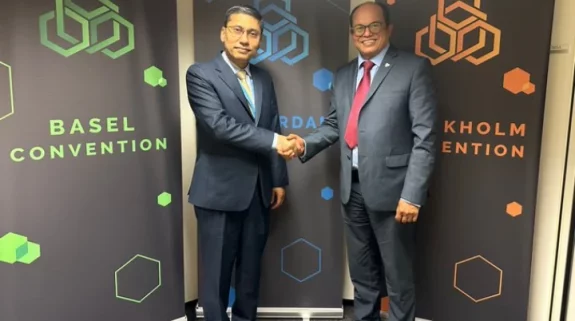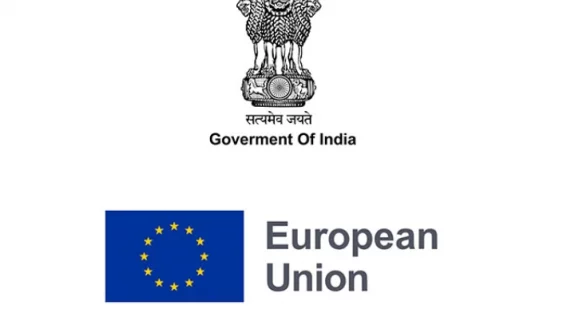The Gulf countries employ about half of India’s total immigrant workforce. They not only make for the unskilled labour there, but are leading in every profession like doctors, engineers, architects, chartered accountants, bankers, university professors, corporate bosses, business entrepreneurs, media personnel and even non-Arab imams in the mosques. In fact, as India plans to enhance its diplomatic and investment footprint in the Gulf countries, these expats will come handy in providing a comfortable fulcrum.
According to data, among all the “white-collar” professionals in the GCC countries, around 20-23% are Indians.
A record number of foreigners who returned to the Gulf countries after easing of the Covid pandemic have been Indians. A total of 189,206 emigration clearances were issued for the Gulf from January to the end of July 2022 alone. It was much higher as compared to 132,763 emigration permits in 2021.
Nearly 9 million Indians living in GCC countries form the largest community of Indians living abroad. According to statistics released by the Ministry of External Affairs in 2022, 3.5 million Indians live in the United Arab Emirates, 2.5 million live in Saudi Arabia, 1 million live in Kuwait, 780,000 live in Oman, 760,000 live in Qatar, and 330,000 live in Bahrain.
Their wages have increased dramatically, and they have started working in more professional trades in recent years and they are trusted more than expats from other countries to lead various institutions in the Gulf countries. Besides, Indians are the most prominent names who have made big as businessmen there.
Surge of White-Collar Indians
While the unskilled and semi-skilled workers were once used to be the face of Indians leaving the Gulf jobs, the number of professionals or experts leaving for the Middle East has increased sharply in recent years and their visibility as leaders there is starkly evident.
In fact, the surge has been noticed in highly-educated Indians moving to the Gulf over the past 15 years. As mentioned earlier, they are occupying key positions in almost all sectors, including even serving the governments in key positions. A noted example is Majid Uddin Kazi, a physician, who was appointed to work for King Fahd of Saudi Arabia and later served as a cabinet minister and acquired Saudi citizenship.
White-collar Indian workers in Qatar include engineers, teachers, chartered accountants, architects, scientists, media, healthcare and software professionals. They are versatile, talented and cheaper to hire than their western counterparts. Qatar is also home to successful Indian companies such as Gulf Lights and Teyseer Motors.
Almost every successful company in Bahrain has an Indian as a middle or senior employee. Similarly, Kuwait also has a number of prominent Indian doctors, engineers, nurses and management consultants.
Apart from blue-collar workers, the Indian diaspora in Oman consists of the media, health workers and people in public administration positions. The story of Oman-based PNC Menon deserves special mention. Not long ago, Menon, who started out as a small roadside boy in Oman, was named the “richest expat in the world” by Forbes. Menon obtained Omani citizenship due to his enormous success as a construction magnate and worked for the royal families of Oman, Bahrain and Qatar.
“I came here with just seven dollars in hand. Rest of the things, Oman created.”
PNC Menon, Founder and Chairman of Sobha Group, who donated $9.6 million to construct 300 houses for the needy, recalls his fond memories in Oman. pic.twitter.com/lnRc5i1vMp
— The Arabian Stories (@arabian_stories) April 17, 2023
Most white-collar workers in the Gulf live a comfortable life. Qatar has seen an increase in the presence of Indians in villas and posh residential areas typically marketed to white foreigners. These Non-Resident Indians (NRIs) also constitute a significant portion of consumers at malls, parks, museums and newly emerging tourist destinations.
The UAE is home to many high profile Indian businessmen who regularly figure in the Forbes list.
With their income rising exponentially, these white-collar expats also bring their families to their respective countries in the Persian Gulf. Their children mostly finish their schooling in the Gulf. As a result, various schools with an Indian curriculum have come into being in the region. This has led to an increase in the number of Indian scholars in the Gulf as most of these schools are run by Indian professionals. The foreign community of Indians has also established various socio-cultural organisations and places of worship in the region.
Indians in Gulf Mosques
Once majority of non-Arab people appointed to manage affairs of local mosques, and even occasionally becoming imams, were Pakistanis. Now, Indians dominate on this front. In fact, in a very significant move, the UAE recently requested India to send teams of Indian imams to train its preachers in using moderate Islam to check radicalisation in its mosques at a time when the Islamic State of Iraq and Syria (ISIS) was spreading its wings across the Gulf shores.
Shaikh Ahmad Naseem, a young cleric from Kerala, serves as muezzin (azaan caller) at grand and internationally-acclaimed Sheikh Zayed Mosque in Abhu Dhabi. His voice reverberates in the whole of Abu Dhabi five times a day, calling nationals of all countries to the prayers.
The UAE also announced that it will be granting golden visas to mosque imams, preachers, muezzins, muftis, and religious researchers who have completed 20 years of service in the country.
According to VisaGuide.World, the golden visa is a long-term visa meant to invite foreign talent to live, work, or study in the UAE.
The Gulf News carried a news item recently of an affluent Saudi family giving a big farewell to Indian imam Sheikh Saeed as he retired after completing 38 years at a local mosque. The send-off was also broadcast by the Saudi television Al Ekhbariya.
According to commentators, Indian Islam appealed to Gulf monarchies because it achieved success in preventing large-scale radicalisation while ISIS recruiting agents were winning over youths around the world.
The GCC countries, according to the Euro-Gulf Information Centre, have over 100,000 mosques. Majority of non-Arab imams, muezzin and other workers in these places of worship are Indians, followed by Pakistanis.
Business Pool
In the Gulf Cooperation Council (GCC), Indian businesses have taken the lead in a number of areas. Success in industries including retail, healthcare, technology, education, contracts, and tourism has enabled Indians residing in the GCC to transfer $89 billion yearly to India, accounting for 65% of all remittances to India, according to the GCC Statistical Centre.
India and the GCC don’t have a formal free trade agreement, but both groups have constantly supported one another’s economy. The GCC, headed by Saudi Arabia, sent tonnes of oxygen to India during the COVID-19 crisis. India made an exemption for the GCC nations when it prohibited wheat exports in 2022 due to the global food crisis due to Russia’s invasion of Ukraine.
Saudi Arabia and India struck trade and infrastructure deals in 2019 that included a commitment from Saudi Arabia to spend more than $100 billion in India.
In February 2022, the UAE and India formalised a comprehensive economic cooperation. Within five years, the goal is to double bilateral non-oil trade to $100 billion. More than $57 billion have been invested in the economy of the two nations.
Around $10 billion trade takes place between India and Kuwait each year, while Kuwait has $5.5 billion invested in India.
According to information from the Qatar Investment Authority, around 6,000 Indian businesses operate in Qatar and have made investments totalling $450 million.
In 2022, trade between India and Oman was $6.7 billion. There is a $7.5 billion market value of the 6,000 Indian businesses in Oman.
The yearly commerce between India and Bahrain is estimated to be about $1.4 billion, and Indian investments in Bahrain are worth roughly $1.5 billion.
According to Forbes, M. A. Yusuff Ali, an Indian entrepreneur, is the best-known Indian businessperson in the GCC as of 2021. In the GCC, the LuLu Group International, which runs more than 200 superstores, is led by Yusuff Ali as chair and managing director.
Besides, a number of other influential business tycoons, executives and entrepreneurs have helped shape the GCC’s economic landscape. Some of them are Ravi Pillai (RP Group), Micky Jagtiani (Landmark Group), Sunny Varkey (GEMS Education), Sunil Vaswani (Stallion Group), Shamsheer Vayalil (VPS Healthcare), Dr Zulekha Daud (Zulekha Healthcare Group), Azad Moopen (Aster DM Healthcare), etc. Actually the list is too long to be compressed.
Great job in service of humanity! https://t.co/hUNVzlXv4d
— Eagle (@albert_colaco) July 15, 2023
India’s Gulf Push to Checkmate China
Famous Foreign Policy magazine recently published a detailed write-up on India’s plans for the Middle East with an eye to compete with China’s growing footprints there.
On the cards is a rail connectivity project that will link all the Gulf countries and it will be piloted by India. Besides, rail, road and sea port links will be established between India and the Gulf countries.
According to the news agency ANI, India’s national Security Adviser Ajit Doval, during his tour to Riyadh last month, met Saudi and UAE leadership to “finalise” proposed projects.
@ayedhalqahtani2 @abdalzizkhalefa
The Abraham Accords, the Trump-era accord that restored relations between Israel & some of its Arab neighbors, is clearly beneficial to India as seen by the rail link project. #Gulf #MiddleEastRegion pic.twitter.com/IYxncLtU1f— Zoya Malik (@zoyamalik6104) May 17, 2023
According to reports, the idea emerged during meetings of the I2U2 group — which also includes Israel.
Given the business ties that the UAE and Israel share with China, the I2U2 group, a relatively new vehicle for US-India collaboration in the Middle East, was not intended to be a China-focused organisation, according to the Foreign Policy. However, the proposed projects will definitely give India an edge to blunt China’s diplomatic advances in the Arab world.
The planned project sends a message that India and the US are prepared to expand the Indo-Pacific area and into the Middle East with their coordinated efforts to confront China.
The connectivity initiative attempts to make use of India’s ability to supply sustainable infrastructure anywhere in the world. With this, India seeks to fight China’s Belt and Road Initiative (BRI) by expanding its infrastructure presence in the Middle East. In this endeavour, India’s workforce already making deep inroads in the Gulf will prove to be extremely handy.
Also Read: India and UAE enhance energy partnership during PM Modi’s Abu Dhabi visit, agree to use local currencies for cross-border transactions






